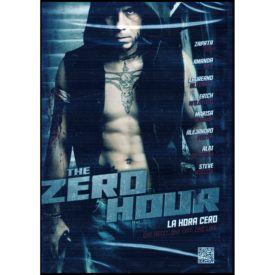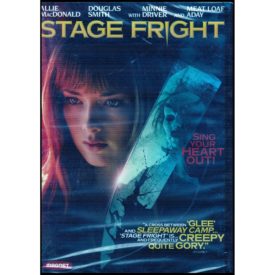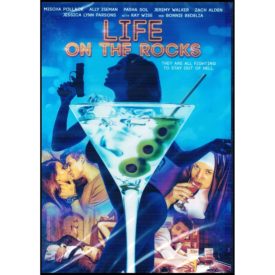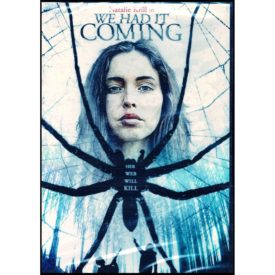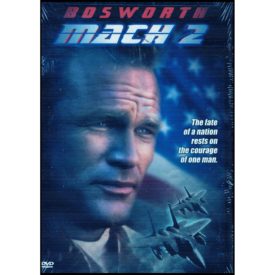Slumdog Millionaire (DVD)
Other Marketplace Price: $17.99Sale Price:$10.49
- Ships Same Day.
- FREE Shipping (U.S. Delivery).
- International Shipping (See Shipping Chart Below).
1 in stock
| Shipping US FREE SHIPPING |
FREE Shipping! |
|---|---|
| Shipping US Expedited 2-3 Day |
US Shipping: $14.99 Unlimited Items. |
| Shipping Canada |
Canada Shipping: Flat $34.99. |
| Shipping Int'l Standard | International Shipping: $64.99 Worldwide. |
| Shipping Local Pick Up |
FREE Local Pick Up in Store |
| Academy Awards record | |||||||
|---|---|---|---|---|---|---|---|
| 1. Best Picture, Christian Colson | |||||||
| 2. Best Director, Danny Boyle | |||||||
| 3. Best Adapted Screenplay, Simon Beaufoy | |||||||
| 4. Best Cinematography, Anthony Dod Mantle | |||||||
| 5. Best Film Editing, Chris Dickens | |||||||
| 6. Best Original Score, A. R. Rahman | |||||||
| 7. Best Original Song – Jai Ho , music by A. R. Rahman, lyric by Gulzar (lyricist) | |||||||
| 8. Best Sound Mixing, Resul Pookutty, Richard Pryke, and Ian Tapp | |||||||
| BAFTA Awards record | |||||||
| 1. Best Film, Christian Colson | |||||||
| 2. Best Director, Danny Boyle | |||||||
| 3. Best Adapted Screenplay, Simon Beaufoy | |||||||
| 4. Best Cinematography, Anthony Dod Mantle | |||||||
| 5. Best Film Music, A. R. Rahman | |||||||
| 6. Best Editing, Chris Dickens | |||||||
| 7. Best Sound, Glenn Freemantle, Resul Pookutty, Richard Pyke, Tom Sayers, Ian Tapp | |||||||
| Golden Globe Awards record | |||||||
| 1. Best Picture – Drama | |||||||
| 2. Best Director, Danny Boyle | |||||||
| 3. Best Screenplay, Simon Beaufoy | |||||||
| 4. Best Original Score, A. R. Rahman | |||||||
| Goya Awards (Spain) | |||||||
| 1. Best European Film | |||||||
Slumdog Millionaire was critically acclaimed and named in the top ten lists of various newspapers. On 22 February 2009, the film won eight out of ten Academy Awards for which it was nominated, including the Best Picture and Best Director. It is the fifteenth film ever to win at least eight Academy Awards and the eleventh Best Picture Oscar winner without a single acting nomination and was the last film to do so until Parasite in 2019. At the same time, Taare Zameen Par (Like Stars on Earth), India s submission for the Academy Award for Best Foreign Film, failed to make the short list of nominations and was frequently compared with Slumdog Millionaire in the Indian media.
It was also the first film shot using digital cinematography to win the Academy Award for Best Cinematography, which was given to Anthony Dod Mantle. The film also won seven of the eleven BAFTA Awards for which it was nominated, including Best Film; all four of the Golden Globe Awards for which it was nominated, including Best Drama Film; and five of the six Critics Choice Awards for which it was nominated. The title sequence was nominated at the 2009 Rushes Soho Shorts Film Festival in the Broadcast Design Award category in competition with the Match of the Day Euro 2008 titles by Aardman and two projects by Agenda Collective.
In 2010, the Independent Film & Television Alliance selected the film as one of the 30 Most Significant Independent Films of the last 30 years.
Reactions from outside India
Outside of India, Slumdog Millionaire was met with critical acclaim. The film holds a 91% approval rating on Rotten Tomatoes based on 289 reviews, with an average score of 8.40/10. The consensus reads, Visually dazzling and emotionally resonant, Slumdog Millionaire is a film that s both entertaining and powerful. On Metacritic, the film has an average score of 86 out of 100, based on 36 reviews, indicating universal acclaim . Movie City News shows that the film appeared in 123 different top ten lists, out of 286 different critics lists surveyed, the 4th most mentions on a top ten list of any film released in 2008.
Roger Ebert of the Chicago Sun Times gave the film four out of four stars, calling it a breathless, exciting story, heartbreaking and exhilarating. Wall Street Journal critic Joe Morgenstern refers to Slumdog Millionaire as, the film world s first globalised masterpiece. Ann Hornaday of The Washington Post argues that, this modern-day rags-to-rajah fable won the audience award at the Toronto International Film Festival earlier this year, and it s easy to see why. With its timely setting of a swiftly globalising India and, more specifically, the country s own version of the Who Wants to Be a Millionaire TV show, combined with timeless melodrama and a hardworking orphan who withstands all manner of setbacks, Slumdog Millionaire plays like Charles Dickens for the 21st century. Kenneth Turan of the Los Angeles Times describes the film as a Hollywood-style romantic melodrama that delivers major studio satisfactions in an ultra-modern way and a story of star-crossed romance that the original Warner brothers would have embraced, shamelessly pulling out stops that you wouldn t think anyone would have the nerve to attempt any more.
Anthony Lane of the New Yorker stated, There is a mismatch here. Boyle and his team, headed by the director of photography, Anthony Dod Mantle, clearly believe that a city like Mumbai, with its shifting skyline and a population of more than fifteen million, is as ripe for storytelling as Dickens s London At the same time, the story they chose is sheer fantasy, not in its glancing details but in its emotional momentum. How else could Boyle get away with assembling his cast for a Bollywood dance number, at a railroad station, over the closing credits? You can either chide the film, at this point, for relinquishing any claim to realism or you can go with the flow—surely the wiser choice. Colm Andrew of the Manx Independent was also full of praise, saying the film successfully mixes hard-hitting drama with uplifting action and the Who Wants To Be a Millionaire show is an ideal device to revolve events around . Several other reviewers have described Slumdog Millionaire as a Bollywood-style masala movie, due to the way the film combines familiar raw ingredients into a feverish masala and culminates in the romantic leads finding each other.
Other critics offered more mixed reviews. For example, Peter Bradshaw of The Guardian gave the film three out of five stars, stating that despite the extravagant drama and some demonstrations of the savagery meted out to India s street children, this is a cheerfully undemanding and unreflective film with a vision of India that, if not touristy exactly, is certainly an outsider s view; it depends for its full enjoyment on not being taken too seriously. He also pointed out that the film is co-produced by Celador, who own the rights to the original Who Wants to Be a Millionaire? and claimed that it functions as a feature-length product placement for the programme.
A few critics outright panned it. Mick LaSalle of the San Francisco Chronicle states that, Slumdog Millionaire has a problem in its storytelling. The movie unfolds in a start-and-stop way that kills suspense, leans heavily on flashbacks and robs the movie of most of its velocity. ...he whole construction is tied to a gimmicky narrative strategy that keeps Slumdog Millionaire from really hitting its stride until the last 30 minutes. By then, it s just a little too late. Eric Hynes of IndieWire called it bombastic , a noisy, sub-Dickens update on the romantic tramp s tale and a goofy picaresque to rival Forrest Gump in its morality and romanticism.
Reactions from India and the Indian diaspora
Slumdog Millionaire has been a subject of discussion among a variety of people in India and the Indian diaspora. Some film critics have responded positively to the film, others objected to issues such as Jamal s use of British English or the fact that similar films by Indian filmmakers have not received equal recognition. A few notable filmmakers such as Aamir Khan and Priyadarshan have been critical of the film. Author and critic Salman Rushdie argues that it has a patently ridiculous conceit.
Adoor Gopalakrishnan, one of the most acclaimed film makers in India during the 1980s and 1990s and a five time Best Director winner of the Indian National Film Awards lambasted Slumdog Millionaire, calling it in an interview to NDTV: A very anti-Indian film. All the bad elements of Bombay s commercial cinema are put together and in a very slick way. And it underlines and endorses what the West thinks about us. It is falsehood built upon falsehood. And at every turn is fabricated. At every turn it is built on falsehood. I was ashamed to see it was being appreciated widely in the west... Fortunately Indians are turning it down.
Academic criticism
The film has been subject to serious academic criticism. Mitu Sengupta (2009 and 2010) raises substantial doubts about both the realism of the film s portrayal of urban poverty in India and whether the film will assist those arguing for the poor. Rather, Sengupta argues the film s reductive view of such slums is likely to reinforce negative attitudes to those who live there. The film is therefore likely to support policies that have tended to further dispossess the slum dwellers in terms of material goods, power and dignity. The film, it is also suggested, celebrates characters and places that might be seen as symbolic of Western culture and models of development. Ana Cristina Mendes (2010) places Boyle s film in the context of the aestheticising and showcasing of poverty in India for artistic (and commercial) purposes, and proceeds to examine the modes of circulation of these representations in the field of cultural production, as well as their role in enhancing the processes of ever-increasing consumption of India-related images.
However, there are others who point to the changing urban aspirations and prospects for mobility that can be seen in Indian cities such as Mumbai in which the film is set. The film is seen by D. Parthasarathy (2009) as reflecting a larger context of global cultural flows, which implicates issues of labour, status, ascription-achievement, and poverty in urban India. Parthasarathy (2009) argues for a better understanding of issues of dignity of labour and that the film should be interpreted in a more nuanced way as reflecting the role of market forces and India s new service economy in transforming the caste and status determined opportunity structure in urban India.
Academic criticism has also been extended to the underlying philosophy of the film, with its apparent ends-justify-means message. Many elements of the film, including the apparent redemption of Salim at the end of his life and the film s subjugation of the suffering of peripheral characters to the romantic aspirations of Jamal, are characteristic, say such critics, of a naïve, Providence-based vision of reality.
Soundtrack
The Slumdog Millionaire soundtrack was composed by A. R. Rahman, who planned the score for over two months and completed it in two weeks. Danny Boyle has said that he chose Rahman because not only does he draw on Indian classical music, but he s got R&B and hip hop coming in from America, house music coming in from Europe and this incredible fusion is created. Rahman won the 2009 Golden Globe Award for Best Original Score and won two Academy Awards, one for Best Original Score and one for Best Original Song for Jai Ho . Rahman had two songs nominated for Best Original Song – the nomination for O... Saya was shared with M.I.A., while the win for Jai Ho was shared with lyricist Gulzar. The soundtrack was released on M.I.A. s record label N.E.E.T.. On Radio Sargam, film critic Goher Iqbal Punn termed the soundtrack Rahman s magnum opus which will acquaint the entire world with his artistry.
Notes
- i Specifically, in the Kumar article, Boyle referred to Deewaar (1975) by Yash Chopra and Salim–Javed, Satya (1998) and Company (2002) by Ram Gopal Verma, and Black Friday (2007) by Anurag Kashyap.
- ii Some of the other Indian films cited by Boyle as reference points for the film include Satyajit Ray s Pather Panchali (1955), Mira Nair films such as Salaam Bombay! (1988), Ashutosh Gowarikar s Lagaan (2001), and Aamir Khan s Taare Zameen Par (2007).
- iii Fox Searchlight Pictures distributed Slumdog Millionaire theatrically in the United States under a shared distribution agreement with Warner Bros. Pictures, Pathé itself distributed the film in the United Kingdom and France, and other independent distributors released the movie internationally.
New
Fox Searchlight
2009
Adult
R
Fox Searchlight
DVD
Fox
B001P9KR8U
024543574415
2008
2008-12-25
120
2h
Won 8 Oscars, 153 wins & 133 nominations total
Danny Boyle, Loveleen Tandan
Simon Beaufoy, Vikas Swarup
Dev Patel, Freida Pinto, Saurabh Shukla
Christian Colson, François Ivernel, Ivana MacKinnon, Cameron McCracken, Tabrez Noorani, Paul Ritchie, Tessa Ross, Paul Smith
A.R. Rahman
Anthony Dod Mantle
Chris Dickens
Gail Stevens, Loveleen Tandan, Meredith Tucker
Mark Digby
Abhishek Redkar, Ravi Srivastava
Swapnali Das, Michelle Day
Suttirat Anne Larlarb
Cherag Bambboat, Virginia Holmes, Natasha Nischol, Vijay Shikare, Kamlesh U. Shinde, Sonam Solanki
Sachin Agarwal, Rajeesh Dham, Lucie Graves, Sanjay Kumar, Digvijay Purohit, Pravesh Sahni, Ajay Shivshankar Singh, Chanpreet Singh, Jennifer Wynne, Bill Daly
Raj Acharya, Avani Batra, Sonia Kanwar, Yugandhar S. Narvekar, Chirag Nihalani, Rohit Ved Prakash, Tanya Singh, Ankit Srivastav
Manoj N. Bhoyar, Sachin Dabhade, Sushil Kumar Giri, Kathy Heaser, Praveen Kumar Hendway, Brendan Houghton, Ravi Joshi, Aditya Kanwar, Irfan Khan, Manasi Kolhe, Srinivas Konda, Mayur Mulam, Wahid Shaikh, Mahale Siddhesh, Neeraj Kumar Singh, Vishal Srivastav, Vishal Srivastava, Andrew Tapper, Prashant Vichare, Marc Knapton
Hugo Adams, Niv Adiri, Shalini Agarwal, Ben Barker, Peter Burgis, Ricky Butt, Roberto Cappannelli, Rachel Carberry, Jayesh Dhakan, Gillian Dodders, Thomas Dodgson, Amrit Pritam Dutta, Danny Freemantle, Glenn Freemantle, Steve Haynes, Lee Herrick, Sanjay Kurian K., Vijay Kumar, Hentry Kuruvilla, Adam Mendez, Jordan O'Neill, Resul Pookutty, Richard Pryke, Vivek Sachidanand, Tom Sayers, Adam Scrivener, Michael Semanick, Firoz Shaikh, Sudesh Sidhu, Dara Singh, Jack Stew, Ian Tapp, Kevin Tayler, Siegler, John Soukup
Shivananda R. Mohili
Matthew Bristowe, Stefan Ciupek, James Cundill, Nick Drew, Paddy Eason, David Emeny, Alec Feegrade, John Frith, Adam Gascoyne, Matthew Hangar, Matthew Hanger, Warwick Hewett, Simon Hughes, Tom Kemplen, Matthew Lawrence, Brad Le-Riche, Begoña Lopez, Hugh Macdonald, Collette Nunes, Roma O'Connor, Jonathan Opgenhaffen, Jesse Parkhill, Matthew Redding, Becky Roberts, Jean-Clement Soret, David Wahlberg, Shamsher Walia, Pat Wintersgill, Nikhil Ghoorbin
Sham Kaushal, Sunil Rodrigues, Paramjeet Singh, Sanober Pardiwalla
Debal Banerjee, Telfer Barnes, Udita Bhargava, Arjun Singh Bhurji, Dharmendra Bhurji, Bidhan Chanda, Stefan Ciupek, Mulchand Dedhia, R. Dee, Mrinal Desai, Rishi Garg, Ikram Hussain, Vishal Jain, Sunil Khandpur, Vicky Khandpur, B. Durga Kishore Kumar, G. Monic Kumar, Kerry Monteen, Ishika Mohan Motwane, Thomas Neivelt, Kevin Nunes, Gyanendra Pratap, Satish Venkataramana, Suresh Yadav
Kelly Valentine Hendry, Seema Khinchi, Swapnil Kore, Rhea Lawyer, Tom Reed, Meredith Tucker
Bharat Mandekar, Riyaz Ali Merchant
Udayan Baijal, Matthew Bristowe, Paul A. Byrne, Fred Chandler, Catriona Delbridge, Celia Haining, Tom Kemplen, Jaime Leonard, Begoña Lopez, Tim Maxwell, Alexandra Montgomery, Vivek Pratap, Ejaz Shalkh, Prashant Sharma, Anuradha Singh, Dan Dolan
Navit Dutt, Kaushik Guha, Rahul Khandare, Akram Malik, Mahendra Singh
Niv Adiri, Pallikonda Adrushta Deepak, Ila Arun, BlaaZe, Suzanne D'Mello, Nikhil Paul George, Gulzar, Noel James, Robert Kraft, T.R. Krishnachetan, Hentry Kuruvilla, Madhumitha, Pravin Mani, Aditya Modi, Simon Mortimer, Nora Mullally, Srinivas Murthy, A.R. Rahman, Shadab Rayeen, Andy Richards, Anthony Seyler, Tanvi Shah, Sukhwinder Singh, H. Sridhar, Vinayak Vijayan, Viviane, Alka Yagnik, Thomas Cavanaugh, Puneet Samtani
Tonia Cohen, Juliette Howell, Nuvendra Singh
Nitin Upadhyaya, Bhawani Singh
Nazar Abbas, Flavio Aquilone, Maxima Basu, Paresh Behera, Thom Berryman, Aarti Bhatia, Ganesh Singh Bist, Angelica Bolognesi Bonacini, Amar Butala, Neil Calder, Ted Cawrey, Sanjay Chaturvedi, Stefan Ciupek, Matt Curtis, Dina Dattani, Harry Dixon, Monal Dutia, Gaia Elkington, Lisa Garner, Ollie Gatehouse, Paul Grindey, Ruth Hodgson, Deepak Jaitely, Polly Johnsen, Thomas 'Käthe' Keller, Rahul Khandare, Pardeep Khanna, Pankaj Kothari, Sam Lavender, Akram Malik, Diarmuid McKeown, Tushaar Mehra, Tariq Mirza, Debbie Moore, George Pank, Raakesh Parekh, Karam Patel, Gyanendra Pratap, Joni Rubin, Neil Sadwelkar, Diraj Sarode, Deepesh Shah, Rakesh Singh, Antony Swiatek, Asheet Thakur, Ian Thomson, Derek Townshend, Vishal Tyagi, Helen Varty, Nick Vasili, Bhavna Vohra, Savyna Indranee Darby, Longiness Fernandes, Rogue Rubin
Deepak Gattani
Crime, Drama, Romance
Celador Films, Film4, Fox Searchlight Pictures
UK, USA
English, Hindi, French, German
R
8
840801
84
Slumdog Millionaire is a 2008 British musical drama film that is a loose adaptation of the novel Q & A (2005) by Indian author Vikas Swarup. It narrates the story of 18-year-old Jamal Malik from the Juhu slums of Mumbai. Starring Dev Patel as Jamal, and filmed in India, the film was directed by Danny Boyle, written by Simon Beaufoy, and produced by Christian Colson, with Loveleen Tandan credited as co-director. As a contestant on Kaun Banega Crorepati, an Indian-Hindi version of Who Wants to Be a Millionaire?, Jamal surprises everyone by being able to answer every question correctly, winning ₹20 million. Accused of cheating, Jamal recounts his life story to the police, illustrating how he is able to answer each question correctly.
After its world premiere at the Telluride Film Festival and later screenings at the Toronto International Film Festival and the London Film Festival, Slumdog Millionaire had a nationwide release in the United Kingdom on 9 January 2009, in India on 23 January 2009, and in the United States on 25 December 2008. Regarded as a sleeper hit, Slumdog Millionaire was widely acclaimed, being praised for its plot, soundtrack, cinematography, editing, direction, and performances (especially Patel s). It was nominated for ten Academy Awards in 2009 and won eight—the most for any 2008 film—including Best Picture, Best Director, and Best Adapted Screenplay. It won seven BAFTA Awards including Best Film, five Critics Choice Awards and four Golden Globes. However, reception in India and among Indian diaspora was mixed, and the film was the subject of controversy over its depiction of poverty in India and other issues.
$15,000,000 (estimated)
$360,018
$141,319,928
$378,410,542
Papadum,murder,india,non professional cast,prostitute






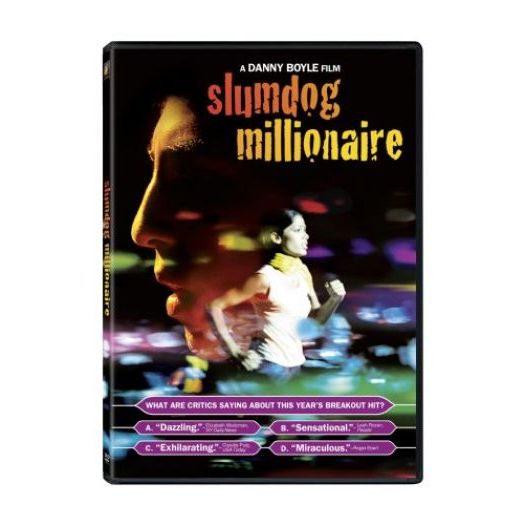
 Item is New Stock.
Item is New Stock. 
